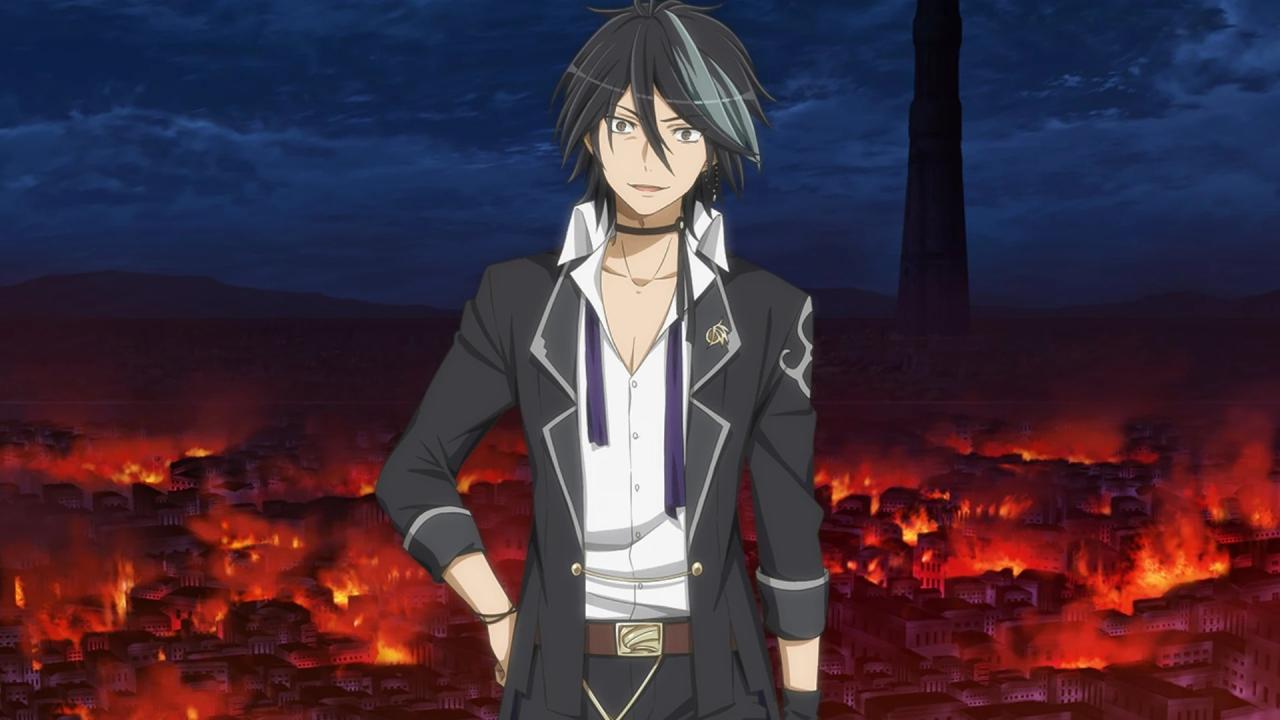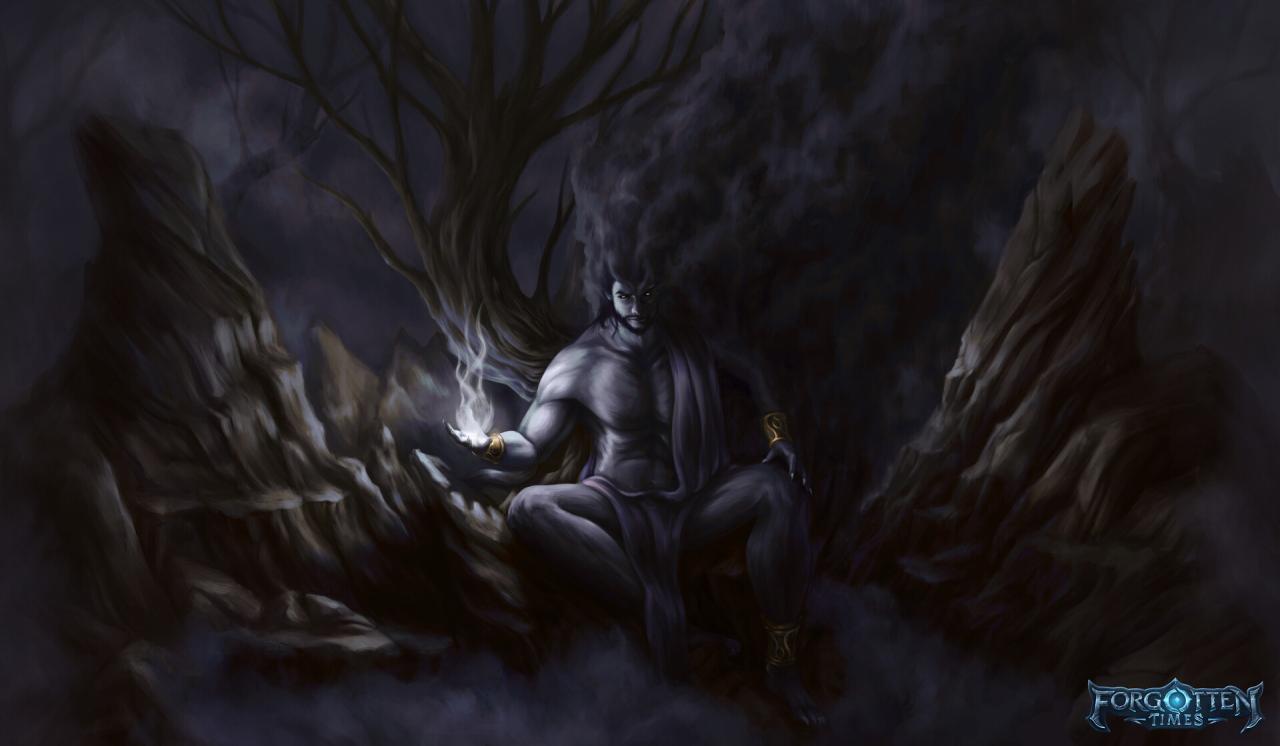Unveiling the primeval god of darkness crossword is an intriguing journey into the depths of ancient mythologies, cultural symbolism, and modern interpretations. From enigmatic deities to challenging wordplay, this exploration promises to illuminate the enigmatic nature of these primordial beings.
In various mythologies, primeval gods of darkness embody the primordial forces of chaos and night, often representing the untamed aspects of the universe. Their symbolic associations with darkness evoke mystery, fear, and the unknown, making them compelling figures in literature, art, and storytelling.
Definition of “Primeval God of Darkness”: Primeval God Of Darkness Crossword
In various mythologies, a primeval god of darkness represents the primordial force or deity associated with the absence of light and the chaotic void that existed before the creation of the universe. These gods embody the darkness that preceded the emergence of order and civilization.
Examples of Primeval Gods of Darkness
Throughout history, numerous cultures have conceptualized primeval gods of darkness:
- Erebus(Greek mythology): The personification of darkness, who, along with Nyx (night), gave birth to Aether (light) and Hemera (day).
- Ereškigal(Mesopotamian mythology): The queen of the underworld and the goddess of darkness and death.
- Tezcatlipoca(Aztec mythology): The god of night, darkness, and sorcery, often depicted with a black face and a smoking mirror.
- Ahriman(Zoroastrianism): The evil spirit who represents darkness, chaos, and destruction.
- Kali(Hinduism): The goddess of time, destruction, and change, often associated with darkness and the night.
Symbolism and Archetypes

Darkness has been a potent symbol across cultures, representing various concepts. In ancient Egypt, darkness symbolized chaos and the unknown, while in Chinese philosophy, it represented the yin principle, associated with passivity and receptivity.
Darkness in Literature, Art, and Mythology
The primeval god of darkness is often depicted as an archetype in literature, art, and mythology. In Greek mythology, Erebus personifies darkness as the primordial deity of the underworld. Similarly, in Norse mythology, the god Loki embodies chaos and darkness.
Myths and Legends
Across diverse cultures and mythologies, the primeval god of darkness has played a pivotal role in shaping the narratives of creation, chaos, and the struggle between light and shadow. These gods embody the primordial forces of darkness, chaos, and the unknown, often representing the antithesis of the benevolent deities associated with creation and order.
The Primordial Abyss
In many creation myths, the primeval god of darkness is depicted as emerging from the primordial abyss, a vast and chaotic void that existed before the creation of the universe. This abyss represents the unformed and undifferentiated state of existence, from which all things ultimately manifest.
The god of darkness, in this context, personifies the primal chaos and darkness that precedes the emergence of order and light.
The Role of the Adversary
In some mythologies, the primeval god of darkness is portrayed as an adversary or opponent of the creator god. This role reflects the inherent tension between light and darkness, order and chaos. The god of darkness may challenge the creator god’s authority, seek to destroy or disrupt the created world, or represent the forces of evil and destruction.
This adversarial relationship symbolizes the ongoing struggle between the forces of light and darkness, as well as the duality of existence.
Symbol of Destruction and Rebirth
In certain mythologies, the primeval god of darkness is associated with both destruction and rebirth. The darkness can represent the end of an era or the dissolution of old forms, paving the way for new beginnings. The god of darkness, in this sense, embodies the transformative power of chaos, which can lead to both destruction and the emergence of new life.
Crosswords and Wordplay
Crosswords are a popular and challenging word game that often feature clues related to mythology and folklore. The primeval god of darkness is a common subject in crosswords, appearing in both cryptic and straightforward clues.
Cryptic crossword clues often use wordplay and misdirection to lead solvers to the correct answer. For example, a clue that reads “Father of Night” could refer to the primeval god of darkness, who is often associated with the underworld and the night.
Straightforward crossword clues simply provide a definition or description of the answer. For example, a clue that reads “Primordial deity of darkness” could refer to the primeval god of darkness.
Crossword Clues Related to the Primeval God of Darkness, Primeval god of darkness crossword
- Father of Night (cryptic)
- Primordial deity of darkness (straightforward)
- Ruler of the underworld (cryptic)
- God of chaos and darkness (straightforward)
- Enemy of the gods (cryptic)
Crossword Puzzle Featuring the Primeval God of Darkness
| Across | Down |
|---|---|
| 1. Primordial deity of darkness (6 letters) | 2. Father of Night (5 letters) |
| 3. Ruler of the underworld (7 letters) | 4. God of chaos and darkness (6 letters) |
| 5. Enemy of the gods (5 letters) |
Answers:
- Across 1: EREBUS
- Across 3: HADES
- Across 5: CHAOS
- Down 2: EREBUS
- Down 4: CHAOS
Modern Interpretations

Contemporary interpretations of the primeval god of darkness in popular culture often reflect societal beliefs and values. These interpretations can vary greatly depending on the cultural context and the specific work of art or literature.
In some cases, the primeval god of darkness is depicted as a malevolent force that represents evil and destruction. This interpretation is often found in works of fantasy and horror, where the god of darkness is the primary antagonist who threatens to destroy the world or enslave humanity.
Contemporary Depictions
In other cases, the primeval god of darkness is depicted as a more ambivalent figure who represents both good and evil. This interpretation is often found in works of literature and philosophy, where the god of darkness is seen as a complex and multifaceted being who is both capable of great destruction and great creation.
Still other interpretations of the primeval god of darkness focus on the god’s role as a symbol of chaos and disorder. This interpretation is often found in works of art and literature that explore the themes of chaos and order, and the struggle between good and evil.
Quick FAQs
What is a primeval god of darkness?
A primeval god of darkness is an ancient deity associated with the primordial forces of chaos and night, representing the untamed aspects of the universe.
What are some examples of primeval gods of darkness?
Examples include Erebus (Greek), Nyx (Greek), Ahriman (Zoroastrian), and Tiamat (Babylonian).
What is the significance of the primeval god of darkness in mythology?
These gods often symbolize the unknown, fear, and the untamed forces of nature, playing a crucial role in the creation myths and cosmologies of various cultures.